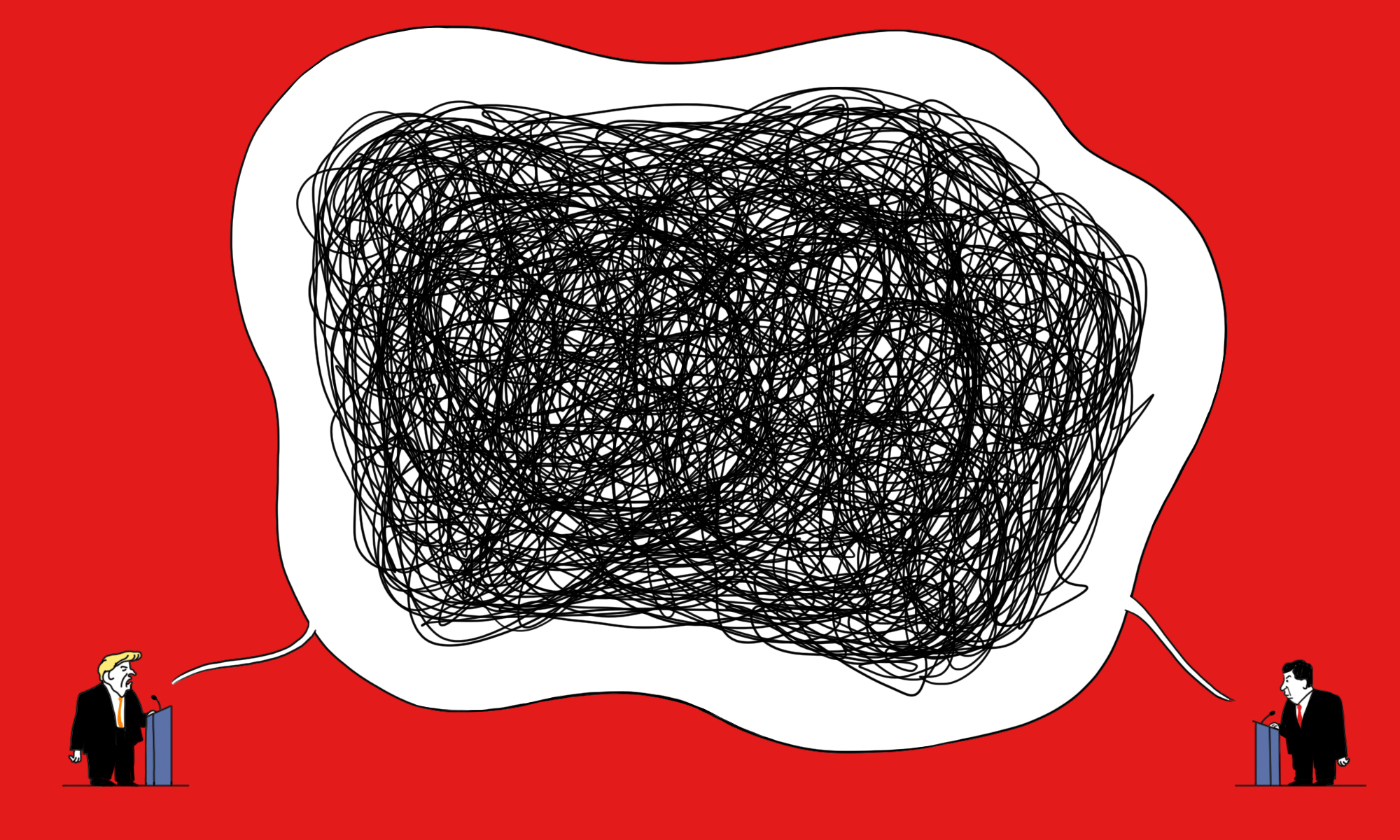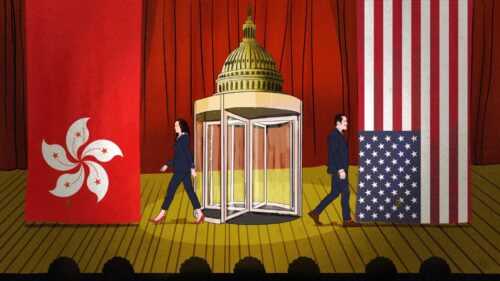U.S.-China: An argument for renewed engagement
With Trump gone, the U.S. now has an opportunity to engage constructively with China’s future leaders, if not its current ones. Track II diplomacy is vital in restoring normalcy to bilateral relations between these superpowers.

The last four years have been a nightmare for those invested in the U.S.-China relationship. Between calls for continual conflict between China and the U.S., and the absolute, unconditional accommodation of a rising power, there is a vast uncharted chasm that the West — particularly Washington — should consider. Engagement has not failed — engagement viewed through rosy, unrealistic lenses, however, has.
The West must engage constructively with China’s youth, its future leaders, party cadres, military, and expanding civil society. It must do so with clearly delineated objectives that are both achievable and at least partially agreeable to both parties. It should do so with the upholding of its values in mind, while acknowledging that the unflinchingly abrasive propagation of these values would only cause counterproductive ossification in its counterpart’s foreign policy. In particular, keeping dialogue flowing through civilians and moderates, who act as the go-between for the two parties, is vital in containing the simmering tensions, and curbing the backslide into a protracted tug-of-war between two emerging spheres of interest.
Much has occurred between the U.S. and China over President Trump’s four years in office. Much was undone. Specifically, the steady progress made toward establishing robust cross-cultural dialogue and frank communication.
In February 2018, FBI Director Chris Wray commented on what was termed the “counterintelligence risk posed to U.S. national security from Chinese students,” remarking that Chinese scholars were “exploiting the very open research and development environment” through espionage activities. His remarks were swiftly followed by limiting the length of visas for Chinese graduate students working in sensitive fields.
Last July, Trump signed an executive order that canceled the Fulbright Program for mainland Chinese and Hong Kong scholars. Fulbright scholar and academic Jenny Lee remarked that she had “not ever seen such an attack on international higher education at this scale… [which limited] the ways that U.S. higher education extends itself internationally.”
America was once hailed as a beacon of liberalism, but four years can do a lot to change a country’s reputation. Take, for instance, Trump’s decision to target members of the Chinese Communist Party and their family members, reducing their visas from 10 years to single-entry one-month visas. Party membership and ties to military academic establishments are unlikely to be substantive indicators of political activity, according to basically every expert.
The national security fears that the Trump administration had seized upon are not completely unfounded. A recent expose by Axios revealed that a suspected Chinese spy had targeted Californian politicians. On the other hand, a recently oft-recycled talking point amongst elements of the American right — that China ostensibly had “friends at the top” influencing U.S. policy — is simply hyperbole and fear-mongering.
But engagement is still possible, and desirable. There remains much value in the U.S. engaging constructively and open-mindedly with China; in particular, it should look toward building closer ties with three groups of individuals. First, Western-educated second-generation party cadres, many of whom are open to Western ideals yet are simultaneously convinced that China doesn’t need to become America. Second, scholars (e.g. Fulbrighters), thinkers, and writers who seek to bridge differences, as opposed to inflaming isolationist tendencies. Finally, innovators, entrepreneurs, and technological talents, particularly those who do business on both sides of the Pacific. Indeed, engagement should extend further, but these groups must be prioritized in targeted engagement over issues of political, diplomatic, and technological contention.
What would a smarter China policy look like?
President Joe Biden knows who he wants on his Asia team, so he probably won’t take any advice here. But this is what I’d like to see.
American diplomats would do well to compartmentalize their critique of China — to detach specific, targeted criticisms aimed at the country’s policies from the fundamental rebuking of the regime altogether. Call out abuses and violations, but do not frame them as intractably linked to the totality of the political regime — whose constituents’ and members’ goodwill is necessary in order to ameliorate the issues. Elected leaders would benefit from tweeting less and conducting more backroom dialogues underpinned by specified objectives and clear boundaries.
The U.S. should speak the interlocutor’s language. By this I do not mean pulling a Matthew Pottinger and saying some phrases in Mandarin, but that diplomats from both sides of the Pacific must grapple with the mindsets and values that motivate their counterpart. Susan Thornton observed that American diplomacy has struggled with “knowing what [they] want, and what the other guy wants.”
“You’ve got to be able to talk with counterparts, listen to them, hear what they’re saying, have good analysis from people who are on the ground,” she added.
Communication backchannels that have dried up over the past few years must be restored. Social media and public platforms are notoriously polarizing and give rise to posturing that only exacerbates animosity and entrenches differences. China hands and veteran diplomats offer a depository of knowledge concerning Beijing’s intricacies — if the West is to engage constructively with China, it must do away with the presumption of cultural and institutional superiority; the End of History may be an attractive proposal for some, but it is a hindrance to negotiations at large.
Biden should restore civil society exchange programs, with bilateral communication and mutual understanding in mind. Such exchange programs should not be political — they should facilitate the entente between two distinct value systems and their respective peoples. Biden must resume the Fulbright Program, rescind the recent ban on the five cultural exchange programs with China, and consolidate collaboration between the U.S. State Department and philanthropic or civil society initiatives that bridge the Pacific. The U.S. can and should be made more attractive for Chinese students who yearn for its distinctive intellectual and academic environment. Reversing the downwards trajectory in the number of international students in the U.S. would be pivotal in restoring the country’s international presence.
Finally, the West must be pragmatic. Given that Beijing is hyper-sensitive over symbolic acknowledgments, or the lack thereof, of its sovereignty, Biden should publicly affirm and acknowledge the right of Beijing to govern and manage its internal affairs, while establishing clearly that how this right is exercised is a different question. On the other hand, the U.S. must rekindle America’s ties with its conventional allies and reaffirm its commitment to shared values and proceduralist justice. It is imperative that in working with and engaging China, the West eschews high-profile statements that do little beyond agitating and inflaming.
None of this comes at the expense of Biden’s electoral promises and political obligations, nor should the U.S. embark on a 180-degree reversal in its China policy. Biden should seek subtle though significant readjustments to his foreign policy, as opposed to moves that would further undermine the pragmatic moderates in the U.S. today.
With all that said, a Biden presidency offers a much-needed reset to the most important relationship of the 21st century. For the first time in a long time, we have hope that the U.S. will take a measured, sensible approach. It will be interesting to see if China reacts in kind. It must — if we are to find common solutions to climate change, the COVID-19 pandemic, and the intensifying security competition between the two largest powers in the world.





